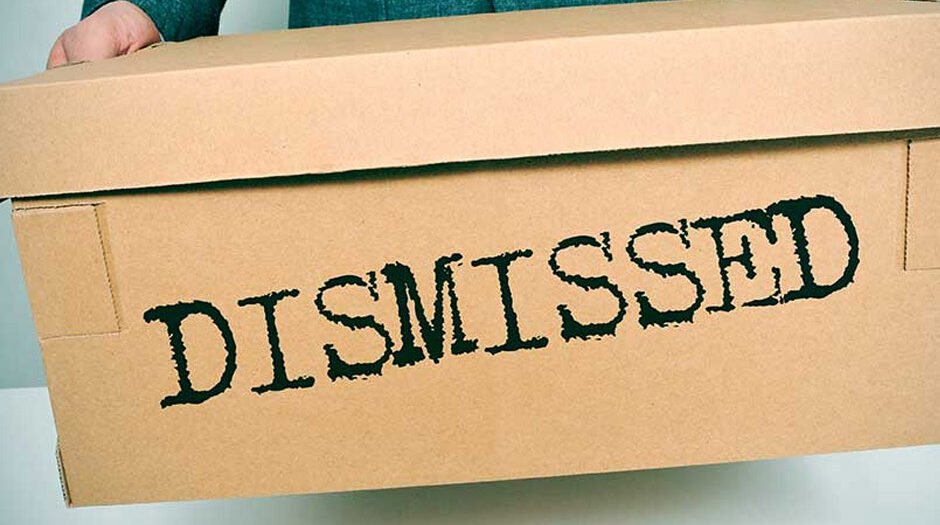Losing your job can be an emotional and confusing experience, especially if the circumstances surrounding your termination don’t seem fair or justified. In Australia, while employers generally have the right to dismiss employees, there are laws in place to protect workers from unfair and unlawful dismissals. If you believe you were wrongfully dismissed, it’s important to understand your rights and the steps you can take to challenge your termination. This guide will walk you through what you need to know when facing a questionable dismissal, giving you the knowledge to take informed action.
1. What Constitutes an Unfair Dismissal?
Unfair dismissal occurs when an employee is terminated in a harsh, unjust, or unreasonable manner. In Australia, the Fair Work Act 2009 outlines the protections for employees and specifies that dismissals must follow lawful and fair processes. There are many circumstances under which a dismissal might be considered unfair, including:
- Being terminated without a valid reason related to performance or conduct
- Being dismissed without being given a chance to improve or respond to concerns
- Lack of procedural fairness in handling disciplinary matters
- Dismissal due to discriminatory reasons (e.g., gender, race, age, disability)
If you feel that your termination falls into any of these categories, it’s essential to consider seeking legal advice. An unfair dismissal lawyer can help you navigate the complexities of employment law and determine whether your case qualifies for an unfair dismissal claim.
2. Who Is Protected Against Unfair Dismissal?
Not all employees are eligible to make an unfair dismissal claim, so it’s important to know whether you’re covered by these protections. In general, you may be eligible if you meet the following criteria:
- You have been employed for at least six months (or 12 months if employed by a small business with fewer than 15 employees)
- You are employed on a full-time or part-time basis, or as a regular casual worker with reasonable expectations of ongoing employment
- You earn less than the high-income threshold (which is adjusted annually) or are covered by an industrial award or enterprise agreement
If you meet these conditions and feel that your dismissal was unjust, you may be able to file a claim with the Fair Work Commission.
3. Understanding Your Rights During a Dismissal
When facing a dismissal, it’s important to know your rights to ensure that the process is fair. Employers are required to follow specific procedures to avoid unfair dismissal claims. Here’s what should happen if you are dismissed:
- Reasonable Notice: Employers must provide employees with a valid reason for termination and give them notice according to their contract or the applicable National Employment Standards (NES). Failing to do so can be grounds for an unfair dismissal claim.
- Opportunity to Respond: If the reason for dismissal is related to misconduct or performance, the employer should give you an opportunity to respond to the allegations before finalising the decision.
- Warnings and Improvement: In cases of poor performance, employers are typically required to provide warnings and a reasonable opportunity for the employee to improve before proceeding with termination. A sudden dismissal without this opportunity could be seen as unfair.
- Redundancy Process: If you’re being dismissed due to redundancy, the redundancy must be genuine. This means that your position must no longer be required, and the employer should explore any available options for redeployment before terminating your employment.
If any of these steps are overlooked or not followed correctly, you may have grounds to challenge the dismissal.
4. Grounds for a Legal Challenge
There are several reasons you may feel your dismissal was unlawful or unfair. Understanding these grounds will help you determine whether your case is strong enough to challenge. Common grounds for challenging a dismissal include:
- Discrimination: If you believe your dismissal was due to race, gender, age, pregnancy, disability, or any other protected characteristic, this would constitute unlawful discrimination. Employers cannot terminate employees based on personal characteristics.
- Retaliation: If you were dismissed after making a complaint, such as reporting workplace harassment, bullying, or safety concerns, you may have been subjected to retaliatory dismissal, which is unlawful.
- Wrongful Dismissal: In some cases, an employer may terminate an employee in violation of their employment contract. For example, if your contract specifies a certain notice period and your employer dismisses you without following those terms, this could be a wrongful dismissal.
- Constructive Dismissal: Sometimes, an employee feels they have no choice but to resign due to their employer’s actions, such as creating an intolerable work environment or changing the terms of employment. In such cases, this could be deemed a constructive dismissal, which can be challenged.
5. How to Challenge a Dismissal
If you believe your dismissal was unfair, the first step is to take immediate action. In Australia, employees have a limited timeframe—generally 21 days from the date of dismissal—to lodge an unfair dismissal claim with the Fair Work Commission. Here’s a step-by-step guide on how to challenge your dismissal:
- Step 1: Review the Situation
Reflect on the circumstances surrounding your dismissal and consider whether any of the grounds for unfair dismissal apply to your situation. Gather any documentation, such as performance reviews, emails, or warnings, that may support your case. - Step 2: Seek Legal Advice
Consulting with an employment lawyer can help you understand the merits of your case and guide you through the process of filing a claim. A lawyer can also advise you on alternative options if a formal claim isn’t the best approach. - Step 3: File an Application with the Fair Work Commission
If you decide to move forward, you’ll need to submit an application for unfair dismissal to the Fair Work Commission. Be prepared to provide details about your employment, the reason given for your dismissal, and why you believe it was unfair. - Step 4: Attend a Conciliation Conference
In many cases, the Fair Work Commission will organise a conciliation conference, which is an informal process to help the employer and employee reach an agreement without going to a formal hearing. If the dispute is resolved here, no further action is required. - Step 5: Prepare for a Formal Hearing (If Necessary)
If conciliation fails to resolve the matter, your case may proceed to a formal hearing before the Fair Work Commission. During the hearing, both sides will present their evidence and arguments, and the Commission will decide whether the dismissal was unfair and what remedy should be provided.
6. Possible Outcomes of an Unfair Dismissal Claim
If the Fair Work Commission finds that your dismissal was unfair, there are several possible outcomes:
- Reinstatement: In some cases, the Commission may order that you be reinstated to your former position, with continuity of service and back pay for the period you were unemployed.
- Compensation: If reinstatement is not feasible, you may be awarded compensation for lost wages. However, compensation is generally capped at 26 weeks’ pay, and any financial award will take into account factors like how long it took you to find new employment.
- No Further Action: If the Fair Work Commission does not find that your dismissal was unfair, no further action will be taken, and the dismissal will stand.
7. Preventing Unfair Dismissal in the Future
While you may not always have control over the actions of your employer, there are steps you can take to protect yourself in the future:
- Keep Detailed Records: Maintain thorough records of your employment, including performance reviews, warnings, and any communication about your job performance. This documentation can be crucial if you need to challenge a dismissal.
- Know Your Rights: Stay informed about your rights under Australian employment law. Understanding your entitlements, such as leave, notice periods, and redundancy rights, will help you recognise if an employer is acting unfairly.
- Seek Legal Advice Early: If you suspect that your job is at risk or feel that your employer is treating you unfairly, seek legal advice early. An employment lawyer can provide guidance and help you address issues before they escalate into termination.
Challenging a questionable dismissal can feel daunting, but knowing your rights and taking the proper steps can significantly improve your chances of success. Whether your dismissal was based on discrimination, retaliation, or a breach of contract, Australian law offers protections for employees who have been treated unfairly. By acting quickly, seeking legal advice, and following the correct procedures, you can challenge an unfair dismissal and potentially secure the outcome you deserve.







